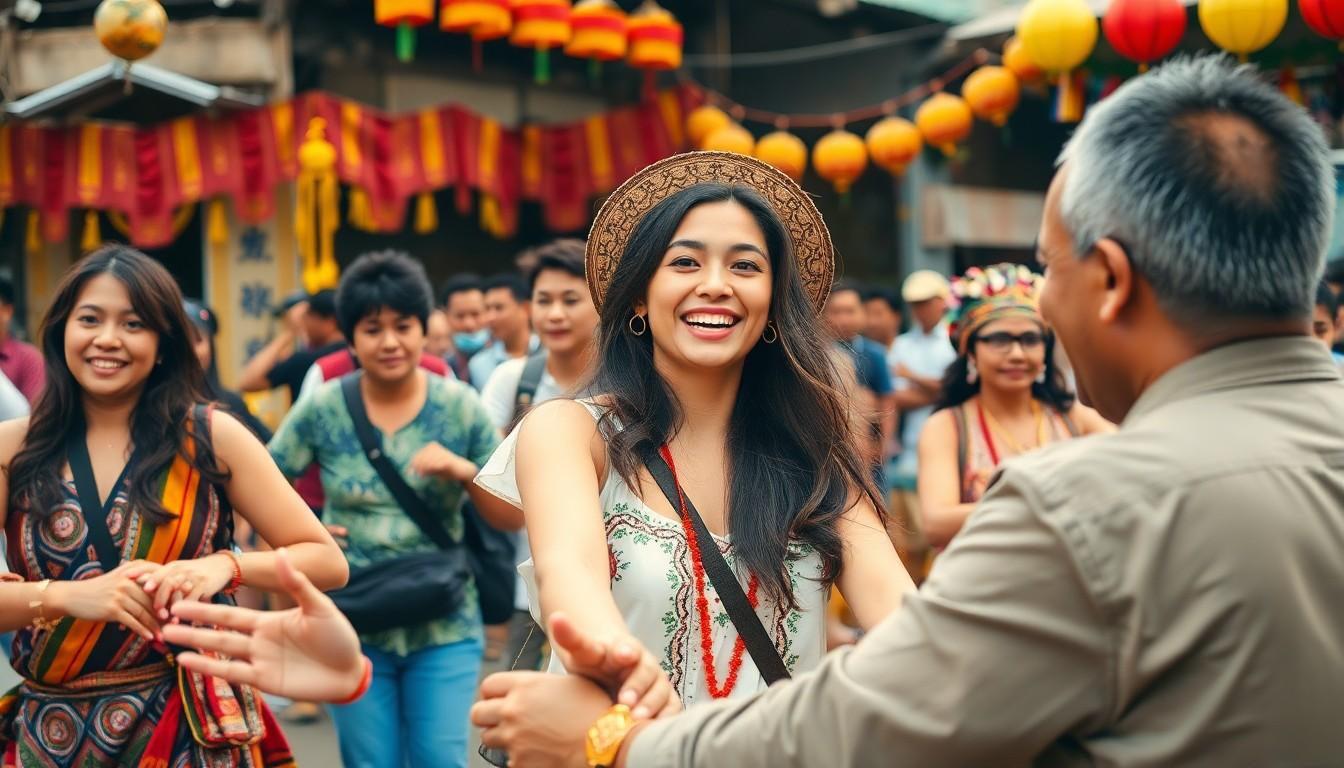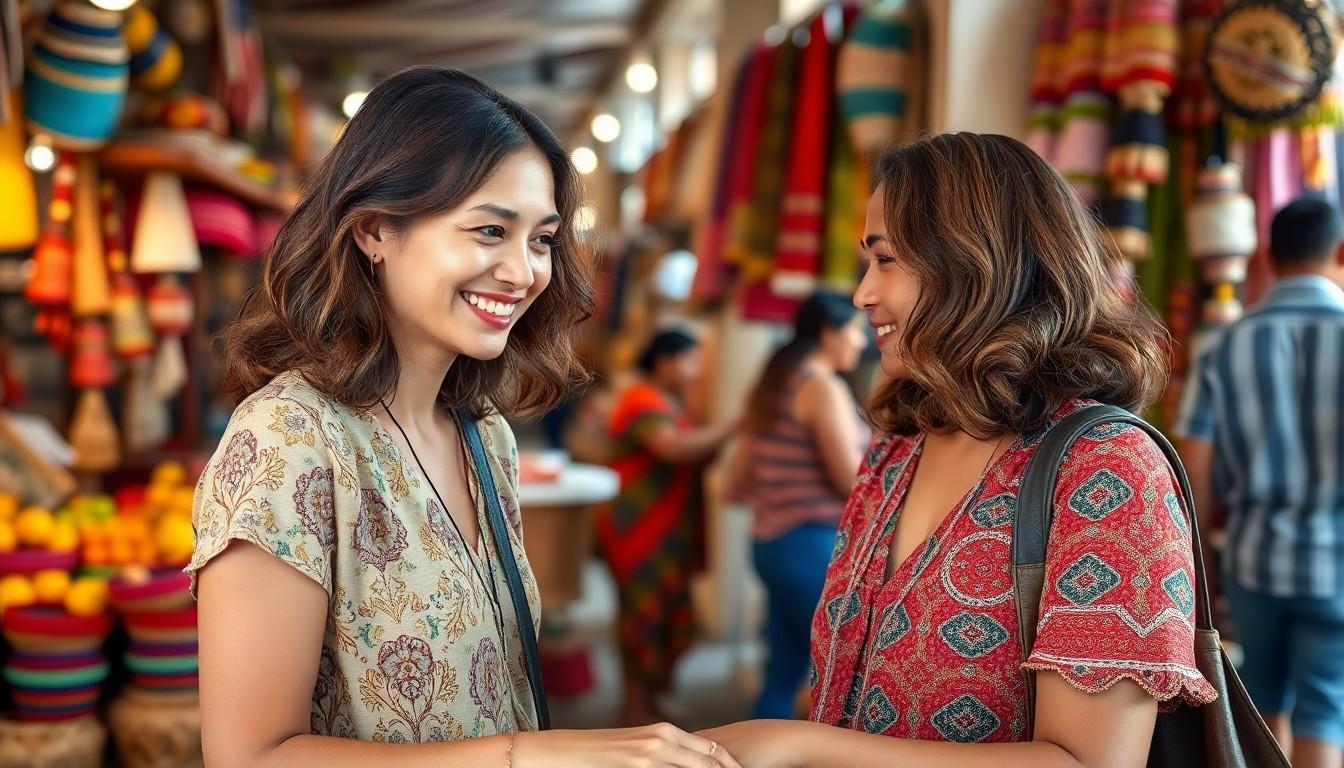In a world where travel often means snapping selfies in front of famous landmarks, the cultural traveler stands apart. They’re the intrepid explorers who seek out hidden gems, savor local delicacies, and dive deep into the stories that shape a destination. Forget the tourist traps; these adventurers crave authentic experiences that make them feel alive and connected to the places they visit.
Cultural Traveler
Cultural travelers seek authentic experiences that extend beyond typical sightseeing. These individuals focus on connecting with local cultures and communities.
Definition and Characteristics
A cultural traveler actively engages in activities that highlight unique cultural aspects. They prefer exploring local neighborhoods over popular tourist spots. Authentic cuisine is crucial, with emphasis on traditional dishes and ingredients. Stories, history, and traditions captivate their interest. Furthermore, these travelers employ immersive practices, such as participating in local festivals or workshops. Respect for the local culture guides their interactions, promoting a reciprocal experience.
Importance in Modern Travel
Cultural travelers play a vital role in the evolution of the travel industry. They drive demand for sustainable tourism practices that protect cultural heritage. By choosing immersive and authentic experiences, economic benefits extend to local communities. Increased interest in cultural education fosters understanding and appreciation among travelers. Such behaviors also encourage destinations to preserve and celebrate their unique identities. Global awareness and empathy flourish as cultural travelers share their experiences and insights.
Types of Cultural Travelers
Cultural travelers fall into several distinct categories based on how they engage with new environments and experiences.
Immersive Travelers
Immersive travelers seek deep connections with local cultures. They actively participate in community events, such as festivals or traditional ceremonies. These interactions often provide insights into cultural practices that typical tourists might miss. Engaging with locals through workshops, classes, or home-stays enriches their experiences. Each moment spent in these settings unveils unique stories and customs that reveal the essence of a place. Immersive travelers thrive on the opportunity to learn by doing, transcending mere observation.
Experiential Learners
Experiential learners focus on hands-on activities that enhance their understanding of a destination. This type of cultural traveler embraces culinary explorations, art classes, or historical reenactments. Each experience serves as a window into the local way of life. By participating in unique activities, they gain valuable knowledge and skills that enable them to appreciate cultures more deeply. Engaging with artisans, participating in cooking sessions, or joining guided tours leads to lasting memories and enriched understanding. Experiential learners capture the spirit of a location through personal involvement.
Destinations for Cultural Travelers
Cultural travelers seek destinations rich in history and unique experiences. These places offer opportunities for engaging with local traditions and understanding diverse cultures.
Rich Historical Sites
Exploring cities like Rome, Athens, and Kyoto captivates visitors with ancient architecture and profound stories. Each site tells unique tales, such as the Colosseum’s gladiatorial history. Significant landmarks like the Acropolis provide insights into ancient civilizations. Additionally, UNESCO World Heritage Sites, such as Machu Picchu, draw those interested in cultural heritage and significance. These locations encourage guests to delve into local narratives and connect with the past.
Festivals and Events
Festivals highlight local customs and traditions, immersing cultural travelers in vibrant experiences. Attending events like Carnival in Rio or Diwali in India creates unforgettable memories. Authentic celebrations often feature traditional music, dance, and cuisine. Engaging in local festivals fosters connections with communities while providing deeper insights into cultural practices. Travelers who participate in these events often find a sense of belonging, making their journey impactful and memorable.
Tips for Cultural Travelers
Cultural travelers prioritize authentic experiences, and thoughtful planning enhances their journeys. Here are practical tips to maximize cultural engagement.
Research and Preparation
Start with thorough research before traveling. Understanding local customs, traditions, and history provides valuable context. Explore blogs, forums, and travel guides to uncover hidden gems. Note specific local events, festivals, or workshops, as these activities offer immersion. Use social media to follow local influencers who share insights about the destination. Create a list of must-visit sites and experiences to ensure a fulfilling trip. Arrange accommodations that reflect local culture, such as guesthouses or homestays. Time spent preparing guarantees a more enriching experience upon arrival.
Engaging with Locals
Connecting with locals enriches travelers’ experiences significantly. Attend community events to foster interactions with residents. Start conversations at markets, parks, or cafes, as these informal settings encourage exchange. Join workshops or classes led by locals to learn traditional crafts or cooking techniques. Participating in cultural activities creates shared moments and deepens understanding. Additionally, consider volunteering for local organizations as it builds rapport and fosters goodwill. Making an effort to engage opens doors to authentic stories and personal histories, making the journey more meaningful.
Challenges Faced by Cultural Travelers
Cultural travelers encounter several challenges that may affect their experiences. Understanding and addressing these challenges can enhance their journeys.
Language Barriers
Language barriers often present obstacles for cultural travelers. Miscommunication can lead to frustration or misunderstandings, particularly in countries where dominant languages differ. Exploring unique destinations might require knowledge of local dialects or phrases. Engaging with locals becomes more difficult without a shared language. Utilizing translation apps or learning basic vocabulary can help ease these interactions. Travelers benefit from seeking out bilingual guides or participating in language classes for enriched experiences.
Cultural Sensitivity
Cultural sensitivity is crucial for maintaining respectful interactions with local communities. Misinterpretation of customs, gestures, or traditions may cause inadvertent offense. Understanding social norms significantly enhances the travel experience. Observing how locals behave in specific settings offers valuable insights into appropriate conduct. Travelers prioritize open-mindedness and adaptability when encountering foreign cultures. Recognizing cultural differences fosters mutual respect and deepens connections. Engaging with locals in respectful ways, such as participating in community events, creates positive exchanges that strengthen the travel experience.
Interactions and Immersive Experiences on Travel
Cultural travelers redefine the way people experience the world. By prioritizing authentic interactions and immersive experiences, they foster a deeper understanding of diverse cultures. Their journeys not only enrich their own lives but also contribute positively to local communities and the travel industry.
These explorers embody a commitment to sustainable tourism that honors cultural heritage. Through thoughtful engagement and a willingness to learn, they create lasting memories and connections that transcend borders. Embracing the essence of each destination allows cultural travelers to leave a meaningful impact, ensuring that their adventures resonate far beyond mere sightseeing.

